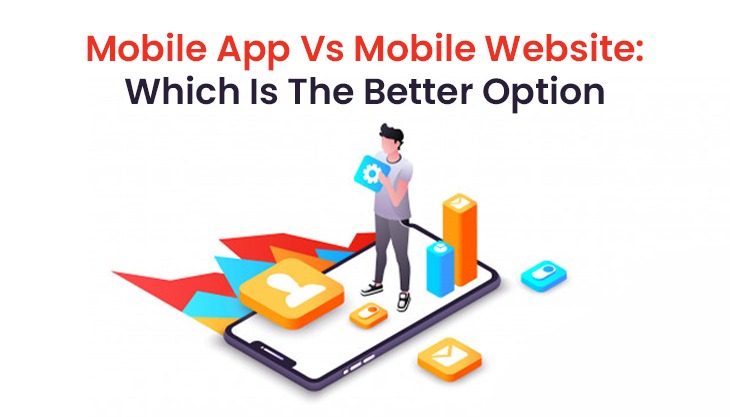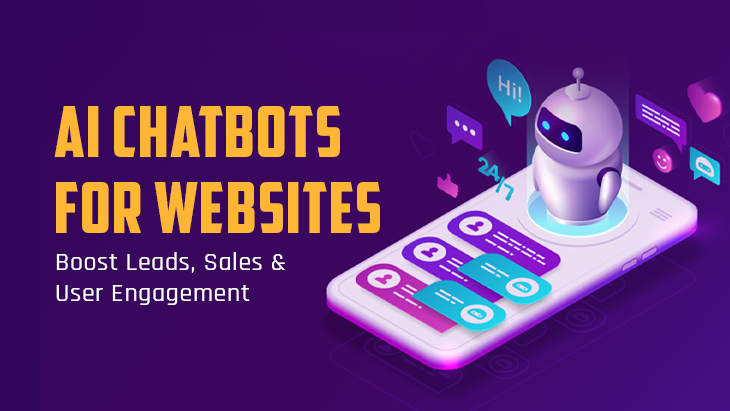Mobile websites and mobile applications can appear very similar however they are two very different mobile platforms. Choosing from these two platforms is very difficult, and it depends on several factors such as your needs, target audience, goals, and intent. There are many ways in which these factors impact the User experience, which is explained below. This will help you to understand the ideal choice for your business.
Mobile Applications
Mobile apps are simply specific platforms created for iOS or Android. A user downloads and installs the mobile applications on their devices, and these applications generally offer a faster and more responsive experience than mobile websites. It has the following impact on the user experience –
A better and interactive way for users to engage
A mobile application helps you provide better offers to your current clients and users that help them get better value from a better channel for engagement. Instead of looking at the same text, the images as a mobile website application can integrate more features that help users interact with the specific components of your application. A simple example of this is the Instagram user who can watch images but cannot upload them without the application.
Customization
Mobile applications allow users to set up their preferences very quickly. They can set up their preferences as soon as they have downloaded the app, and then it can be customized according to their needs. These applications can also be used to track user engagement and provide custom recommendations and updates, making your mobile application more useful to the users. A mobile application also allows businesses to send customized communication methods to the user based on their interest, location and behaviour. Customization allows the users to get the best out of your application. You can learn how to create effective user-focused notification strategies for your mobile applications by various methods.
Ability To Work Offline
Mobile applications can also run without an Internet connection. However, many applications require internet connectivity to perform most of their tasks, but they can still offer some content and functionality to their users in offline mode. This is very advantageous because users can access information anytime, anywhere.
Intuitive Interface
Mobile applications generally have more user-friendly and innovative interfaces. This makes it very easy to perform any task. This creative interface environment helps users become more emerged in the mobile experience. Users of the different operating systems can understand common functionalities and characteristics. When developing an application for a particular platform, it can provide users the functionality they expect from it. Responsive websites are not a guarantee of the standard functionality of what the user prefers.
Use device capabilities as well
Mobile applications can also use built-in device features, including camera GPS and location. These features of the device help applications to provide an enhanced and convenient User experience to the clients. The ability to automatically use GPS and location data helps retail apps to send flowers with special items specific to the client’s area.
Responsive Mobile Websites
Responsive mobile websites are the websites that can accommodate different screen sizes. These responsive websites are customized versions of regular websites that can be used correctly for mobile. It has the following impact on the User experience –
Available for all the users
Unlike mobile applications that can only function on specific platforms such as iOS or Android responsive websites can be accessed from any mobile device. It does not depend on the operating system as long as there is an Internet connection available. It is an important thing that you need to ensure that you have network access, the quality of the network is good, and speed is also good so that you can get a perfect mobile experience through websites. Responsive websites do not need to be downloaded or installed; they are entirely free.
Users do not need to update
Unlike mobile applications, users do not need to spend time installing newer versions and update their applications to improve the experience of the application. Websites are very easy to update, and the company can easily fix bugs and support. The user will not even notice the update process and can directly get the enhanced experience.
Cost-Effective
This is a benefit to the business more than it has an impact on the User experience. However, according to the complexity, a mobile responsive website can be more cost-effective than complete mobile application development.
Conclusion
Mobile application vs mobile website can be a very difficult task to choose from. They both have their advantages and disadvantages. In the end, it comes down to just your needs and preferences, along with the budget you have. You can choose either a mobile application development company or a website development company. You can then tell about your requirements so that these companies can then create applications and websites smoothly.






Post Comments